In my recent post on How to compute for the Maximum Allowable Offer or MAO for foreclosed properties, I mentioned that instead of multiplying the After Repair Value (ARV) with the 70%, you can just subtract the projected costs for acquisition, carrying costs, marketing costs, and target profit from the ARV, less Repair costs, to get the MAO. This takes away the guess work.
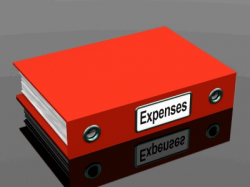 In relation to this, I received a very good question from gwapito with regard to the actual breakdown of costs as it seems the projected cost of 10% used in my previous example might be unrealistic. Let me try to answer his question through this post.
In relation to this, I received a very good question from gwapito with regard to the actual breakdown of costs as it seems the projected cost of 10% used in my previous example might be unrealistic. Let me try to answer his question through this post.
Before I answer gwapito’s question (in bold below), let me first post his comment in its entirety:
I’m following your blog since April 2010 & I’ve learned a lot from you without any books, without any DVD’s on how to and without any mentor. I really appreciate the way in which you helped others learning real estate investment which is one of the subjects I always dreaded.
I have queries about Cost Factor (CF) which I am confused, it seems like the cost factor will be more than 10% or approx. 30% something considering that the roundtrip transaction cost/acquiring cost will be shouldered by buyer (i.e CGT,CWT,DST,TT,REGISTRATION FEE,DEED OF SALE,VAT, MARKETING COST). Let say you have a deal worth 5 Million of House & lot:
1.What CF will you be using, lets say you will be shouldering all the above roundtrip transaction costs? Can you give me the exact figure of CF breakdowning into details?
*2.As a seller, what is the provision that I could be exempted in paying Creditable Witholding Tax (CWT)?
*3.What is the comparison between DEPRECIATION COST AND REPAIR COST? Are you using repair cost as a depreciation cost?
I thank you again for all the wonderful work you have done and wish you all the best for your future endeavors.
*I already answered questions 2 and 3 in the comments section of my previous post.
Thank you gwapito for the excellent questions and for the encouraging feedback. I’ll try to answer your first question to the best of my knowledge below.
Let me first list down the common major expenses that are usually for the account of the buyer when buying a foreclosed property from a bank.
Using gwapito’s data in his question, I’ll assume the property is a house and lot worth Php5 Million.
For simplicity’s sake, let’s also assume that the selling price is also Php5 Million and the zonal value is less than the Selling Price, which means we shall use Selling Price instead of Zonal value for all the computations below.
Expenses for acquiring a property
Let me enumerate the common expenses you will have to pay as the buyer of a property
- Documentary Stamps Tax or DST = 1.5% of Selling Price or about Php75,000
- Transfer Tax = 0.75% of Selling Price or about Php37,500
- Registration Fee = Php4,398 + Php45 for every Php20,000 in excess of Pph1,700,000 or about Php11,823
- Notarial expenses can be as low as Php200 (it can be as high as 1% of the selling price)
The projected total cost for you as the buyer in acquiring the property in this example would be Php124,523.00
Expenses for selling a property
When you as the buyer turns around and sells the property, the following are the related expenses:
- Capital Gains Tax or CGT = 6% of the Selling Price or about Php300,000
- Value Added Tax or VAT is not applicable in this example assuming you are not YET habitually engaged in real estate, which is also why Capital Gains Tax was included instead of Creditable Withholding Tax.
- Marketing – lets assume you will do all the marketing yourself through online marketing because this is supposedly a hot property which is so easy to sell, hence the marketing cost is zero.
Total projected cost for selling the property in this example would be Php300,000
Therefore, total cost for acquiring and selling this property would be Php124,523 + Php300,000=Php424,523 which is about 8.49% of the Selling Price of Php5 Million
Carrying or Holding Costs
Assuming you got this at 20% downpayment, balance payable in 10 years at 12% interest, your monthly amortization would be Php57,388.37 (I just used the mortgage calculator of this site)
The monthly amortization of Php57,388.37 is about 1.14% of the Selling Price of Php5 Million
Putting it all together
Assuming that the property can be sold in less than 1 month, the total cost for acquiring, carrying, and selling the property would only be 8.49% of the selling price, since no monthly amortization needs to be paid. For every month the property is not sold, a monthly amortization will have to be paid, which means an additional cost of 1.14% per month.
If the projected time to sell the property is 3 months, the total estimated cost for acquiring, carrying, and selling the property would be 8.49% + (1.14%/month x 3months) = 11.91%
As you can see, an estimated cost equal to 10% of the selling price is the total cost cost for acquiring, carrying, and selling a property like the one in our example above, appears to be realistic as the 10% cost falls between 8.9%(projected cost if property is sold in less than a month) and 11.91%(projected cost if property is sold in 3 months).
Thank you gwapito for your questions and let me know if you need any clarifications.
~~~
To our success and financial freedom!
Jay Castillo
Real Estate Investor
PRC Real Estate Broker License #: 003194
Blog: https://www.foreclosurephilippines.com
Follow me in Twitter:http://twitter.com/jay_castillo
Find us in Facebook:Foreclosure Philippines facebook page
Text by Jay Castillo and Cherry Castillo. Copyright © 2010 All rights reserved.
PS. Don’t be the last to know, subscribe to e-mail alerts and get notified of new listings of bank foreclosed properties, public auction schedules, and real estate investing tips. Inbox getting full? Subscribe through my RSS Feedinstead!
Image courtesy of Stuart Miles / FreeDigitalPhotos.net



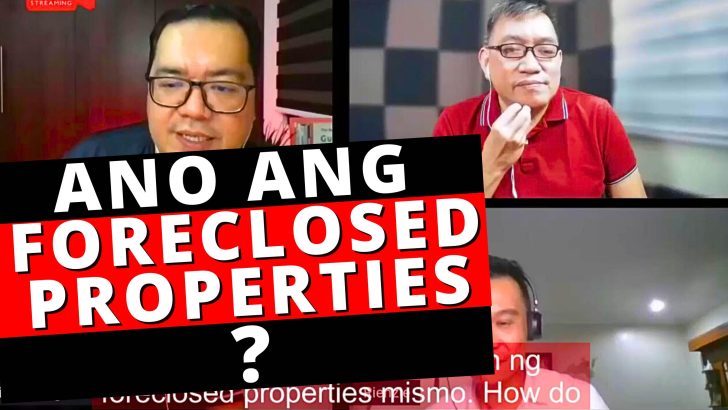
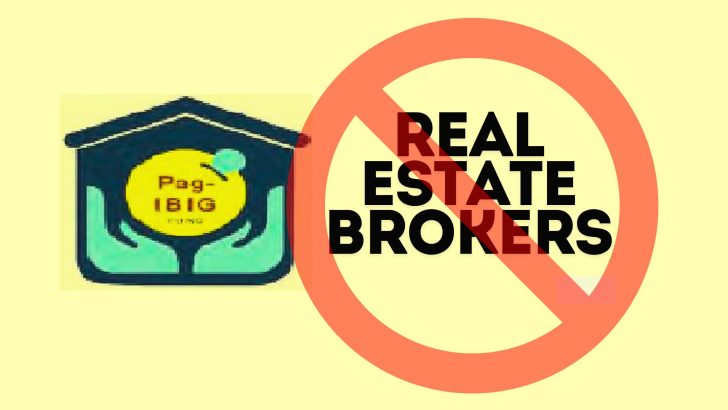
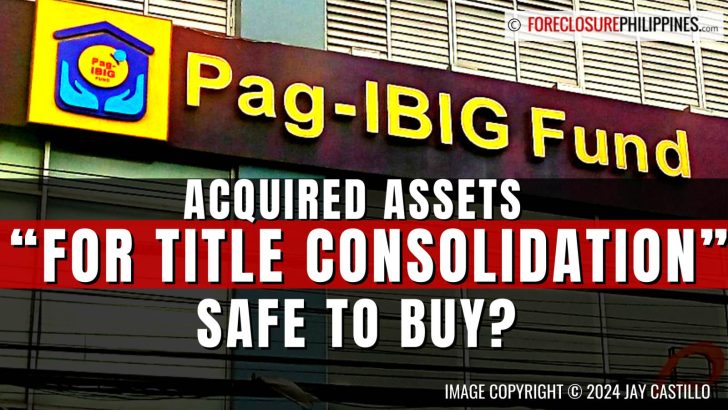
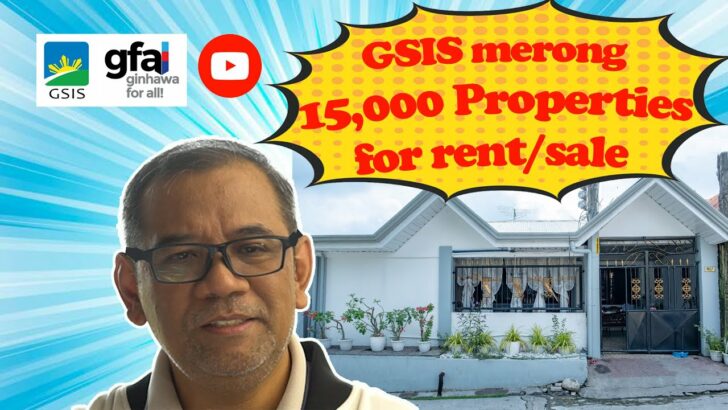
![Why invest in foreclosed properties in the Philippines? + Top things to consider [Video] 6 Why invest in foreclosed properties in the Philippines? + Top things to consider [Video]](https://www.foreclosurephilippines.com/wp-content/uploads/2023/03/video-how-to-invest-in-foreclosed-properties-in-the-philippines-v3-728x410.jpg)

Hi Jay, for foreclosed condo units, may I ask whether association dues and realty taxes are paid by the foreclosing bank? Or are these not payable during the period the unit is under the bank’s “ownership”? Will these fees not be ‘frozen’ or will it continue to be accrued despite, and assuming, the unit is vacant?
Many thanks and more power to your website.
Hi Jay, thanks for creating this website its very informative. I just have a few question and I hope you can help me. I currently paying House and Lot under Sta. Lucia it will end on June 2016. Question, when I will start paying the Real Estate Tax?
Hi Frank, your welcome and thank you for the kind words! With regard to Real Property Tax, payment will usually start upon turn-over.
Hi Jay,
I’m doing a research that has something to do with the discounts for tenants who occupied a certain premise for more than 10 years. I found your website, and I would like to acquire further details about the rent control law. If a tenant has been occupying the premise for more than 10 years, and decided to buy the property, would there be a discount to be applied? If so, what would be the possible percentage? The sample monthly rental would be 4,500 Php, and the tenant has been occupying the house from 2002 to date.
Any inputs will be appreciated.
Con
Pingback: FIP’s best of 2010 to help you get started in 2011
Pingback: What To Expect When Buying Foreclosed Properties
Sir Jay,
In my own opinion, CF is still not realistic at 90% considering the time factor on transferring the different documents. I think it would be impossible, to tranfer the title in just a month period, if you are applying for a bank loan. Modest percentage could be as you say 12% to 16% of the selling price if you carry the property from 3-6 months period. I’m also new and want to learn from your blogs, can you tackle the realistic timeline in acquiring, selling, and carrying the property (considering the red tape system of the gov’t and safety measures of the banks in aproving loan)??
Alfred
Dear Mr. Jay,
Thanks for the brilliant explanation and your REAL WORLD EXPERIENCES. The reason I was raised those queries is because I want to apply the system & techniques what I’ve learned from your site for my very, very, very first transaction deal regardless of NO MATTER WHAT IT TAKES. I want to test those tools & techniques and make this experience like a REALITY TV SHOW and I want to call this program as FIP – REALITY BLOG SHOW. (FIP instance for FORECLOSURE INVESTING PHILIPPINES). But first, I would like to ask your permission before I proceed because I need your opinion technically. If you will give me a GREEN LIGHT then the show will go on.
Wow! I cant believe that buying and selling a property alone carries an interest of 8.49%! Selling fast is really the object of foreclosed investing
By the way Jay, how come repair cost wasn’t included in any of the categories you mentioned? Shouldn’t it be included? Thanks once again.
Hi Liza, for this particular post, we are breaking down the cost factor or CF in the formula MAO = CF x ARV – Repairs – Profit which became MAO = ARV – Repairs – Profit – acquisition cost – carrying cost – marketing or selling cost. Repairs is of course included as you can see on the formulas we can use to get MAO.
Jay, it would be different if property is going to be offered in a rent to own scheme, right? Like Expenses for Selling would be replaced by repair budget, real property tax, monthly dues (if applicable). Is there anything else that I missed?
Thank you and God bless!
Hi Liza, yes it would be different if the exit strategy is rent-to-own. MAO is primarily used when you are flipping a property but it is still something you need to consider, just in case your tenant buyer suddenly decides to pay in cash. You need to analyze the cashflow if you plan to go for a rent to own scheme and you do this by computing for the Net Operating Income or NOI and then the Cash on Cash Return or CCR. Aside from what you mentioned above, you also need to consider maintenance reserves, property management, percentage tax or VAT, vacancy rates, etc. NOI and CCR will be tacked in greater detail separately soon. Thanks for the comment!
Hi Jay!
I am just a beginner foreclosure – learner and honestly it is not very clear when you are saying about selling foreclosed property.
As long as i know most of the mortgages has a clause which prohibits mortgagor to sell the property before loan maturity date.
Are you talking about loan assumption?
Please specify how is actually selling process of mortgaged property happening?
Many thanks!
Hi Sergey. Most banks here in the Philippines that sell foreclosed properties, do not require any seasoning period, the properties can be sold immediately. For loan assumption, I know one government lending institution requires that a mortgaged property must be at least 2 years in good standing before they will allow it to be refinanced by them. This government lending institution is the Home Development Mutual Fund or Pag-ibig. This is the closest I can think of that resembles what you mentioned. Cheers!
Pingback: Tweets that mention How to compute for the projected costs for acquiring, carrying, and selling a property
This article is very helpful. Thank you very much! 🙂